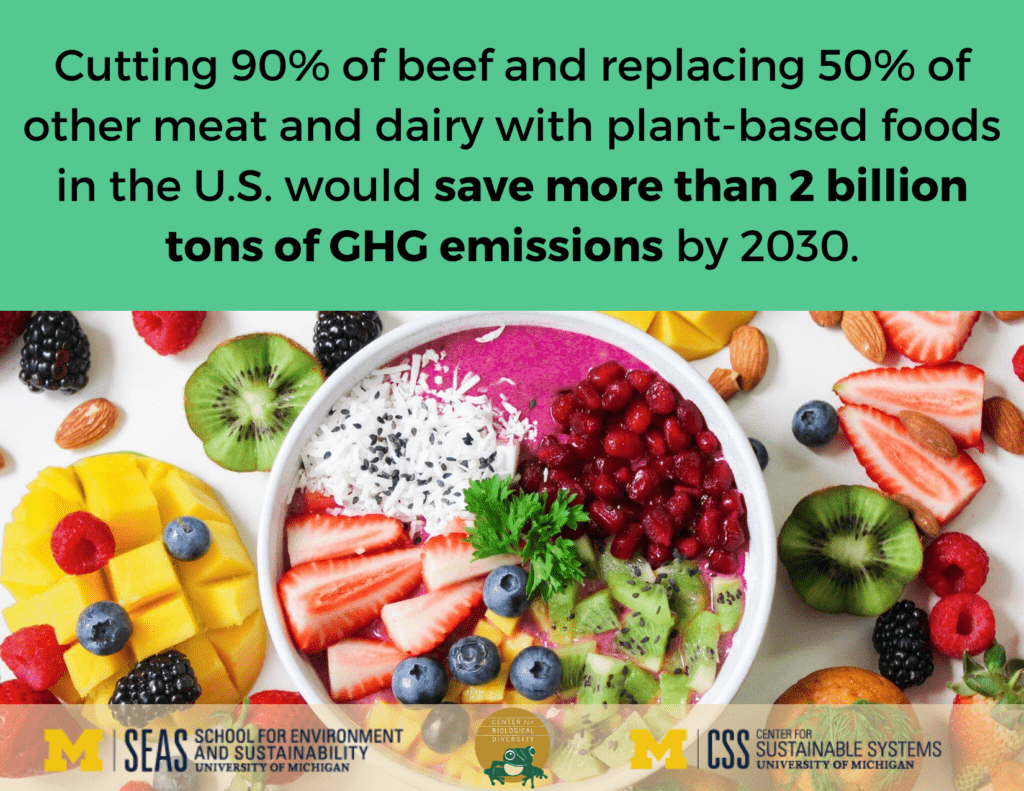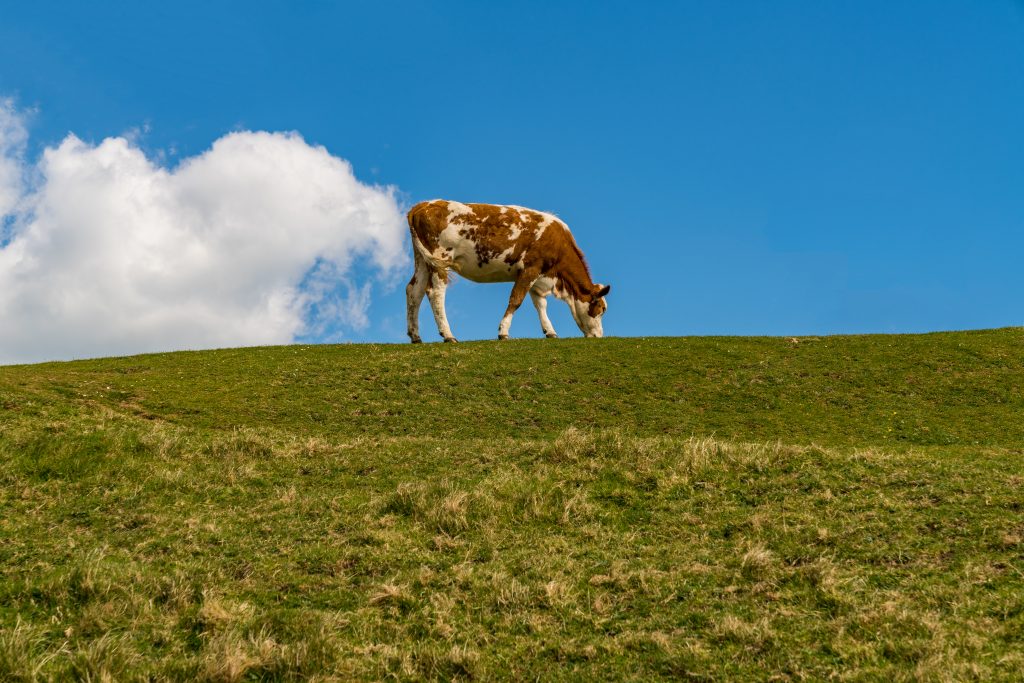Eat your way to lower emissions
Replacing half of all animal-based foods in the US diet with plant-based alternatives could reduce climate-altering greenhouse gas emissions by up to 1.6 billion metric tons by 2030. This is according to a new study from the University of Michigan and Tulane University.
The report found that replacing half of all animal-based foods with plant-based alternatives would reduce diet-related emissions by 35 percent. Based on US population projections, that would amount to savings of 224 million metric tonnes a year in 2030. A reduction of 224 million metric tonnes is equal to the annual emissions of 47.5 million cars.
The target of a 50 percent reduction in animal-based foods assumes that the country’s dietary shift would occur gradually between now and 2030. This would result in an estimated cumulative emissions reduction of 1.6 billion metric tonnes.

Food is the key to climate change
In addition to cutting animal-based foods by half, if US consumers also reduced beef consumption by 90 percent, the emissions savings would be even greater. Dietary emissions would be cut by 51 percent, resulting in a cumulative reduction of 2.4 billion metric tonnes of greenhouse gas emissions by 2030. That’s a lotta gas.
“While a diet shift isn’t a silver bullet, it could play an important role in curbing climate change,” says Senior Research Specialist Martin Heller, lead author of the study.
In a 2019 report, the Intergovernmental Panel on Climate Change said that reducing greenhouse gas emissions from food production is a key to solving the climate crisis.
In general, animal-based foods are responsible for more greenhouse gas emissions by weight than plant-based foods. Diet-related greenhouse gas emissions include carbon dioxide, methane and nitrous oxide. Beef cattle production in particular generates significant levels of greenhouse gas emissions.

Let’s step on the gas
Prior to processing beef cattle, they must be fed for at least 18 months. Growing all that food is an energy-intensive process. In addition, cows burp and fart lots of methane, and their manure can also release this potent greenhouse gas.
Here in Australia, livestock methane and nitrous oxide emissions account for around 10 percent of our nation’s greenhouse gas output. A study published in the journal Global Environmental Change found that Australia was one of the countries with the greatest potential to reduce beef-related greenhouse gas emissions. This is due to the fact that we are one of the world’s biggest beef-eating countries.
Meanwhile, in New Zealand, scientists have discovered a cattle vaccine that can prevent the gut microbes that produce methane burps. This is a research breakthrough that could have global significance. The same research team is also using genetics to breed sheep that produce less methane. That’s not baa-ad at all.
Looking for more ways to lessen your carbon footprint through your diet? Check out this advice on how you can save the planet and your health.









